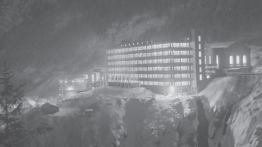Spring 2014 Seminar Series: Juan-Andres Leon
Friday, February 28, 2014, 3 - 5pm

THE IRWIN S. CHANIN SCHOOL OF ARCHITECTURE OF THE COOPER UNION
Spring 2014 Seminar Series Presents
"The Topography of Chemical Industrial Complexes"
Lecture by Luis-Andres Leon, Postdoctoral Fellow, Beckman Center for the History of Chemistry, Chemical Heritage Foundation.
Juan Andres is the 2013–2014 Gordon Cain Postdoctoral Fellow in the History of Technology, Policy, and Entrepreneurship at the Chemical Heritage Foundation (CHF). During his stay at CHF he starting a new research project that analyzes the incursion of mathematical models and computer simulations in postwar industrial and academic chemistry in the United States.
His Ph.D. dissertation in the history of science, “Citizens of the Chemical Complex” (Harvard University, 2013), explored the persona of the chemical industrialist in Imperial and Weimar Germany, showing how scientific identity shaped the German business landscape and the practice of science philanthropy, which included political support and significant participation in research beyond chemistry in such areas as applied mathematics, physics, and astronomy.




